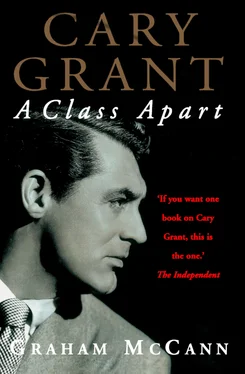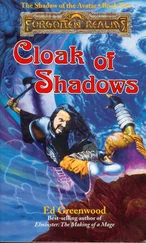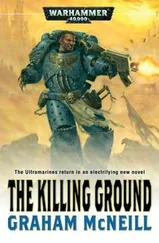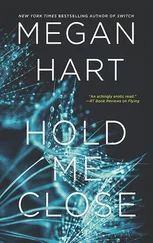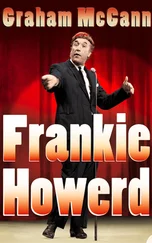He found an additional outlet for his energies in the 1st Bristol Scout troop. At the end of his first year at Fairfield he volunteered for summer work wherever his Boy Scout training could be used for the war effort: ‘I was so often alone and unhappy at home that I welcomed any occupation that promised activity.’ 12 He was assigned to working as a messenger and guide on the military docks at Southampton. For two months he watched thousands of boys not much older than himself sail off towards France; some had already lost an arm or a leg in combat but were being sent back for a second time. It was a poignant experience for him, but it was also, in an odd way, an exhilarating period in his life. When he returned to Bristol, he began to spend time at the docks, where schooners and steamships sailed right up the Avon into the centre of the city. ‘You always had a sense that Bristol was a port, a gateway to somewhere else,’ he said, and, seeing the ships ‘that could take you all over the world’, he came to see the city as ‘a place you could leave, if you wanted to, and, at that age, I did.’ 13 He was restless and lonely, and it appears that he contemplated signing on as a cabin-boy until he discovered that he was too young. 14 Although, years later, he described Bristol as ‘one of my favorite places in the world’, 15 he admitted that, at the time, ‘I didn’t like it where I was, and I wanted to travel’. 16
Back at the dark, quiet, cramped house in Picton Street, he was aware that his father, on those irregular occasions when he saw him, was growing increasingly withdrawn and melancholic. ‘He was a dear sweet man, and I learned a lot from him,’ 17 but as a father he no longer exerted much influence on Archie’s life. The shadow of Elsie hung over them both. Years later, Cary Grant wrote of a long-held desire to ‘cleanse’ himself ‘perhaps of an imagined guilt that I was in some way responsible for my parents’ separation’. 18
An opportunity to escape from the emptiness of his home life opened up unexpectedly when he encountered an electrician who was helping out in the school laboratory as a part-time assistant. Grant remembered him as a ‘jovial, friendly man’ 19 whose attitude towards his own family was considerably more responsible and positive than that of Elias Leach. This unnamed benefactor took a kindly interest in the bright but rather pathetic young boy who was clearly eager for companionship. He was also working at that time at the Hippodrome, Bristol’s newest variety theatre, which had opened in 1912; a fully electrified theatre was still something of a novelty in those days, and he offered Archie the chance to explore the house that he had helped to wire. Archie, without any hesitation, accepted:
The Saturday matinee was in full swing when I arrived backstage; and there I suddenly found my inarticulate self in a dazzling land of smiling, jostling people wearing and not wearing all sorts of costumes and doing all sorts of clever things. And that’s when I knew ! What other life could there be but that of an actor? They happily travelled and toured. They were classless, cheerful and carefree. 20
From that moment on, Archie Leach spent as much time as he possibly could at the theatre. The electrician introduced him to the manager of the Empire, another Bristol theatre, where he was invited to assist the men who worked the limelights. There he began to learn the ways of showbusiness people, absorbing the lore of the theatre. This unofficial job came to an abrupt and embarrassing end when, working the follow spot from the booth in the front of the house, he accidentally misdirected its beam, revealing that one of an illusionist’s tricks was achieved with the aid of mirrors. Archie reappeared, his enthusiasm undimmed, at the Hippodrome, where he became a familiar sight, running errands and delivering messages backstage. His father and grandmother were, it seems, quite content to allow him to pursue his new activity without any interference. ‘I had a place to be,’ he said, ‘and people let me be there.’ 21
During 1918, Archie recorded his daily activities in his Boy Scout’s notebook and diary, a four-by-three-inch leather-bound volume which was preserved by Cary Grant in his personal archive. A few typical entries from January of that year give one a good sense of how his free time had come to be dominated by the theatre:
14 Monday . After school I went and bought a new belt. And a new tie. Empire in evening. Daro-Lyric Kingston’s Rosebuds.
17 Thursday . Stayed home from school all day. Went to Empire in evening. Snowing.
18 Friday . My birthday. Stayed home from school. In afternoon went in town. In evening, Empire.
21 Monday . School. Wrote letter to Mary M. Empire in evening. Not a bad show. Captain De Villier’s wireless airship at the top of the bill.
22 Tuesday . School all day. In evening, Empire. All went well, first house. But second house, wireless balloon got out of control and went on people in circle. Good comedy cyclist called Lotto. 22
He was nearing the age when he could leave school, and he was convinced that he wanted to work full-time in the theatre as soon as he possibly could. He was watching – and often meeting backstage – a broad range of music-hall acts, and he was eager to begin performing himself. At some unrecorded point during that period, probably late in 1917, 23 he made contact with Bob Pender, who was the manager of a fairly well-known troupe of acrobatic dancers and stilt-walkers known as Bob Pender’s Knockabout Comedians. 24 He had never achieved the kind of success enjoyed by Fred Karno, but he was an established and respected figure on the music-hall circuit. 25 Archie had heard that the troupe was being depleted regularly as the younger performers reached military age: ‘When I found out that there were actually touring companies who would let you perform, and take you around the world, I was amazed, and it became my ambition to join one of these travelling shows.’ 26 In a letter on which he signed his father’s name, he wrote to Pender – who was on tour at the time – offering his services (but neglecting to note that he was not yet fourteen). 27 Pender replied favourably, inviting Archie to report to Norwich as an apprentice. 28
According to Cary Grant’s version of what happened, he intercepted Pender’s letter, ran away from home, caught the train to Norwich (paying the rail fare with money sent by Pender) and was placed in training with the troupe, practising cartwheels, handsprings, nip-ups and spot rolls. 29 It took Elias more than a week to find him, eventually catching up with him in Ipswich, but whatever anger he had felt was swiftly assuaged by Pender, who was, Elias discovered, a fellow Mason. 30 The two men agreed, over a drink, that Archie could return to the troupe as soon as he was allowed to leave school – an event that Grant later claimed he tried to hasten by getting himself expelled: doing his ‘unlevel best to flunk at everything’ and by cutting class after class. 31
On 13 March 1918, for some undocumented reason, Archie Leach was suddenly expelled from Fairfield. In front of the school assembly, it was announced that he had been ‘inattentive … irresponsible and incorrigible … a discredit to the school’, and that he would be leaving immediately. 32 There are at least four distinct versions of what had happened to precipitate such a radical measure. His own account, repeated and embellished in numerous interviews, was that he and another boy had been caught as they investigated the interior of the girls’ lavatories. 33 A second, rather less racy, version, put forward by a classmate, claims that he was found in the girls’ playground: ‘His expulsion was so unfair. Several of us girls were in tears over it, because we didn’t like to lose him.’ 34 Another contemporary insists that the reason why he was expelled was that he had been ‘involved in an act of theft with two other boys in the same class in a town named Almondsbury, near Bristol’. 35 Years later, G. H. Calvert, a headmaster of Fairfield, could not clarify the matter: ‘I have heard various accounts of the reason for his leaving the school, but have no reason to suppose that any one of them is truer than another. Probably only Mr Grant and the headmaster of the day knew the facts of the matter, and memories play tricks …’ 36 A fourth, and perhaps most plausible, theory is that the decision to expel Archie Leach was not inspired by some singularly dramatic misdemeanour but rather was the act of a broadly utilitarian headmaster (Mr Augustus ‘Gussie’ Smith) who had – along with the practically minded Elias Leach – reached the conclusion, after a string of petty incidents, that it would be best for all concerned if Archie Leach and Fairfield School parted company sooner rather than later. 37
Читать дальше
